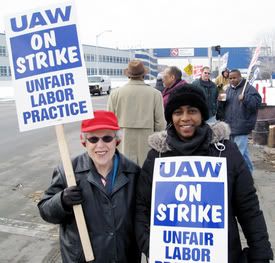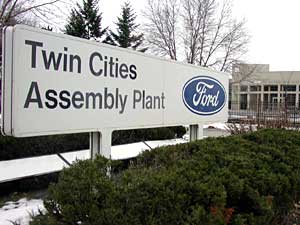A Communist response to the immediate crises faced by our working class is absolutely necessary. Our home is in the working class. Gus Hall, the former leader of the Communist Party U.S.A., once wrote that "our Party is a Party FOR the working class. Our Party is a working-class party." (Gus Hall, The Path to Revolution)
Communists have no interests separate and apart from the working class or the majority of the American people. But we have a special viewpoint and approach. Karl Marx and Frederick Engels wrote that Communists are "the most advanced and resolute section of the working-class parties of every country, that section which pushes forward all others" and "'clearly understands the line of march, the conditions, and the ultimate general results of the proletarian movement." (Marx and Engels, Communist Manifesto)
Political parties are instruments which serve class interests. We need a Marxist-Leninist working-class political party--a revolutionary party dedicated to the fundamental transformation of society. V.I. Lenin wrote: "we see in the independent, uncompromisingly Marxist party of the revolutionary proletariat the sole pledge of socialism's victory and the road that is most free from vacillations." (V.I. Lenin, A Militant Agreement for the Uprising)
Our world outlook is scientific socialism, or Marxism-Leninism as it is commonly called after Karl Marx and V.I. Lenin, its foremost originators and exponents. Marxism-Leninism is the science of social change. It is revolutionary because it recognizes in the struggles of today the basis of fundamental social change. It is revolutionary because central to it is the reality that the climactic point of that change, the replacement of one social system by another, is a revolutionary act.
To be a Communist is to be firmly committed to the fight for the welfare and interests of the working class and of working people in general. It is to be selflessly devoted to the noble vision of emancipation of humankind from all exploitation and oppression, to the victory of socialism and communism. In the words of Karl Marx and Frederick Engels, "the Communists fight for the attainment of the immediate aims, for the enforcement of the momentary interests of the working class; but in the movement of the present, they also represent and take care of the future of that movement." (Marx and Engels, Communist Manifesto)

(United Auto Workers union strike at American Axle, 2008. Photo: John Rummel for the Labor Up Front blog.)
We Communists, motivated by the elemental human needs of the international working class and our people, fight the evils of capitalist exploitation. Ours is the fate of our class and our people. The trials of their existence are ours. We strive for the improvement of their conditions of existence here and now. At the same time, we are convinced that socialism, and beyond it communism, offers the only fundamental, lasting solution to the problems of exploitation and oppression, that it opens the only door to an immeasurable improvement in the quality of people's lives. Thus the struggle for revolution is the logical continuation of the struggle for a better life.
Through immediate struggle workers organize and learn the need to battle further. They learn to understand the terms of their exploitation and the need for socialist revolution. V.I. Lenin once wrote that: "only struggle educates the exploited class. Only struggle discloses to it the magnitude of its own power, widens its horizon, enhances its abilities, clarifies its mind, forges its will." (Lenin, Lecture on 1905 Revolution) Every successful socialist revolution was carried out by the working class with experience rich in the struggles for immediate demands. A working class which did not battle for day-to-day improvements would, as Karl Marx put it, "be degraded to one level mass of broken down wretches past salvation."
For Communists the constant challenge is to relate everyday struggle to the ultimate goal, to show the relation of reform to revolutionary change. We believe there is an absolute need for a revolutionary working-class party in the ranks of workers and fighting in the immediate day-to-day struggles. Lenin said that "It is to enable the mass of a definite class to learn to understand its own interests and its position, learn to conduct its own policy, that there must be an organization of the advanced elements of the class, immediately and at all costs, even though at first these elements constitute only a tiny fraction of the class." (Lenin, Collected Works, Vol. 19)
Our working class requires a Communist Party that applies Marxism-Leninism to the struggles of the workers and their allies, a party that seeks to guide that class to power. Lenin wrote that: "It (Marxism) made clear the real task of a revolutionary socialist party: not to draw up plans for refashioning society, not to preach to the capitalists and their hangers-on about improving the lot of the workers, not to hatch conspiracies, but to organize the class struggle of the proletariat and to guide this struggle, the ultimate aim of which is the conquest of political power by the proletariat and the organization of a socialist society…" (Lenin, Our Programme)




